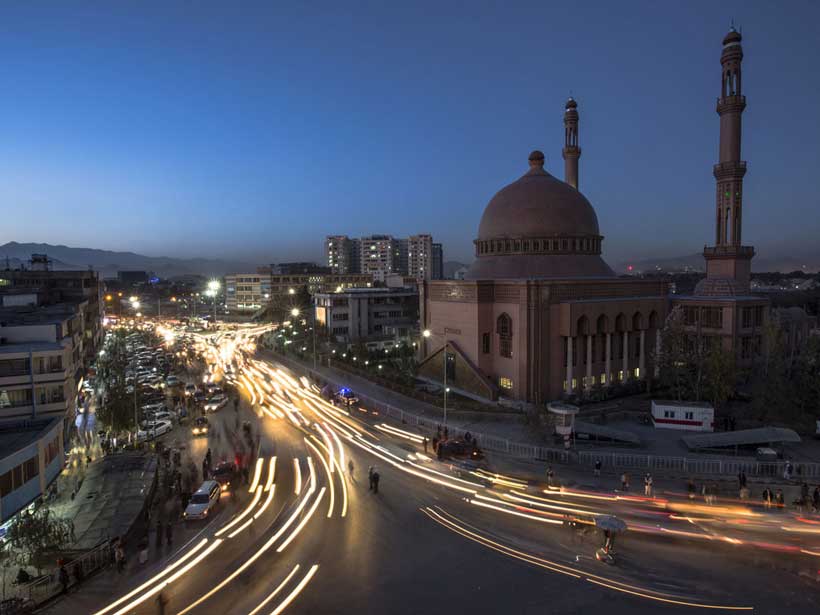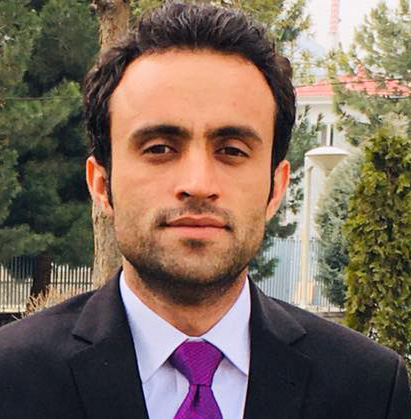By an overview of the history of developed countries, we can conclude that the same as us they also have faced various kinds of crises throughout their history, including foreign aggression, internal wars, poverty, economic collapse, and political disagreements in their homes. After the successful management of these crises, they have reached out to today's development.
Every kind of crisis has a very deep impact on overall life's aspects of any Nation-State. One of them is war and war-condition which has long term political, economic, and social impacts, and ruin the infrastructure of any state completely or part of it.
Only natural resources cannot play a decisive role in the wellbeing, economic and political development, but it's up to the people decisions in electing the competent leaders.
By an overview of the history of developed countries, we can conclude that the same as us they also have faced various kinds of crises throughout their history, including foreign aggression, internal wars, poverty, economic collapse, and political disagreements in their homes. After the successful management of these crises, they have reached out to today's development.
Every kind of crisis has a very deep impact on overall life's aspects of any Nation-State. One of them is war and war-condition which has long term political, economic, and social impacts, and ruin the infrastructure of any state completely or part of it.
By reading and analyzing the historical direction of the developed countries we can find that primarily they have set out priorities in the view of their natural geography; geostrategic, geo-economics and geopolitical circumstances, and dominant social conditions. One of their priorities is the infrastructure they have paid attention to, and have rebuild & strengthened.
Infrastructures play a vital role in the survival of a nation. Thus, in the post-conflict arena state pay very close attention to it. For almost decades our country has been pushed into an imposed and proxy war. So, it is very apparent it has/had the impacts on all dimensions of our citizens' life.
In the post-conflict arena, we must set out some priorities for the well-being, survival, and improvement of our country in the long-term strategy on behalf of achieving our vital goals to step forward for being stand up in the line of successful countries. These priorities should cover all the aspects, including the creation of new infrastructures, and rebuilding & strengthening the existing, also political, economic, cultural – academic, and social dimensions. Here I want to point out these priorities very briefly.
1. Infrastructures
The primary and very basic needs of the citizens in the 21st century are Food & water, hospitals, roads, electricity, schools, universities, and human asset. Below I discuss every one with details:
1.1 Food and Water
According to statistics, nearly half of our country's population lives under the poverty line. This means that the per-capita income of the population is less than 1.25 US dollars per day. Furthermore, according to statistics just only 45% of the population has access to clean drinking water. Our first focus should be on self-sufficiency in this regard and should pay attention to the national water supply network's infrastructure regulation.
Afghanistan is an agricultural country and its economy is depended very highly on agriculture. Considering the various and rich plains, underground natural resources, mountainous geography; first, we should focus on the national water management system, and in the second step should go through modernization of the cultivation for being efficient and strengthening the agricultural-based economy. By doing this, on one hand, the economy of the citizens will strengthen, poverty will decrease, the economic circulation will get speed up, and will reach self-sufficiency in food. As the result, we will release our country from the monopolization of neighbors and finally, it will play a very important role in reviewing and redefinition of our political, diplomatic, economic, trade, and cultural relations with the neighbors, in particular. On the other hand, modernization of the cultivation system and supporting the farmers will result in preventing the cultivation of narcotics and its drugging and the lawful – agriculture economy will become a substitute for the illegal economy. Furthermore, the financial supportive base of the war can be weakened and will impacts putting an end to the current war. For the aim of facilitating access to clean drinking water, all the water resources should be regulated.
1.2. Hospitals: According to the report of VOA nearly 400 million US dollars have been spent by the Afghan citizens annually as a remedy & treatment expenditures. If we pay attention to health infrastructure and at least including Kabul, make eight high standard hospitals in the eight zones of the country, which could result in response to the country's health demands sufficiently. By doing this we will save 400 million US dollars and on the other hand, will put an end to the torture of our people abroad, and will result in decreasing the gap between citizens and the government.
1.3. Electricity: According to DABS (De Afghanistan Brishan Sahrkat) reports, Afghanistan pays 300 million US dollars as the expenditures of the imported electricity from neighbors, annually. If we manage our rivers – water and use it in producing electricity by making the 27 small and large dams, will save 300 million US dollar and on the other hand will increase 300 million more revenue (600 in total, because from one side will save the 300 expenditures of electricity, and on the other hand will increase 300 million more revenue due to electricity selling). Besides, by solving the legal – political disagreements over the rivers and its water with neighbors, we will get more than 55 billion US dollar revenue to our national budget annually. Because now nearly 55 cube meter water is being flooded to our neighbors without paying from their side. So, if we sell one cube meter water just only with one dollar, it will give us the above-mentioned income flow into our national economy.
1.4. Schools, Universities, and human capital: Due to lack of technical human capital within the home, annually we pay millions of dollars as the salaries expenditures of foreign staff in our ministries. For creating this human capital we need standard technical institutes and universities. At least if we establish 500 standard technical institutes throughout the country and eight standardized universities in the country for production of the required human capital, from one hand we will recruit our youth force, which will bring more jobs opportunities and will play a key role in strengthening the economy of our citizens.
2. Economy Arena
Our country by having 3 trillion US dollars values underground resources, also as the point of strategic connection among the neighbors and countries of the region for transit and trade, has more economic opportunities. If we work regularly for the managing of underground resources and mining, we will have the economic stability of our two to three generations, in the result.
On the other hand, by having an appropriate geostrategic location for trade and transit we are honored with a gift of nature, which through active economic & trade diplomacy we can explore our trade relations with our neighbors and region's countries and can achieve billion of billion dollars through the right of way. But, for avoiding the speculation of the revenue the corruption should be decreased to its minimum extent in customs and financial authorities through establishing an advanced system of transparency.
3. Political Arena
The ex-president of Singapore, Lee Kuan Yew; in his book' From Third World to First: The Singapore Story" has said: Only natural resources cannot play a decisive role in the wellbeing, economic and political development, but it's up to the people decisions in electing the competent leaders. You may have read or heard more about Singapore, that a country which is deprived of natural resources, find a very strong position in the world economy.
Based on this quote of Lee Kuan, I want to point out that: ' Additional to the above mentioned natural resources and opportunities, electing a good leadership for leading the country can play a vital role in achieving our goals of development, which one day we will find a position in the successful nations of the world. Without considering this point every kind of plan, concept, and strategy will remain a dream or like the 'Utopia' of Plato.
You may ask that what is good leadership and how we can elect it? By answering shortly, good leadership means taking amenability and responsibility toward citizens, and we can elect them through establishing strong political parties in the country. As Max Weber says: 'Political parties have been birth in the result of democracy, or political parties are the sons of democracy.' This means that the stability of democracy without strong political parties and the development of a country are impossible. So these are the political parties which play an important role in the stability of democracy, promoting democratic values & culture, and strengthen the principle of amenability and responsibility.





